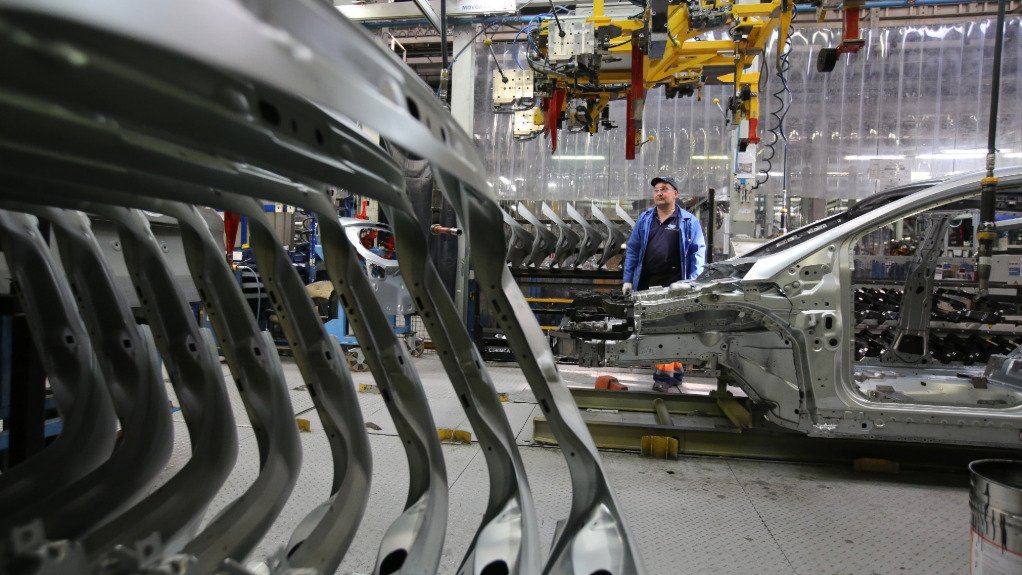The Nedbank Manufacturing Roundtable, held on July 11, in Johannesburg, has highlighted the imperative of greater localisation opportunities and the need to facilitate comprehensive skills transfer in the manufacturing sector.
The speakers at this event included financial services company Nedbank Commercial Banking national manager Amith Singh; component manufacturing association the National Association of Automotive Component and Allied Manufacturers (NAACAM) policy and regulatory affairs head Beth Dealtry; advocacy organisation Proudly South Africa CEO Eustace Mashimbye; Manufacturing, Engineering, and Related Services Education and Training Authority (MerSETA) CFO Ncedisa Mpande; food and beverages company Tiger Brands Culinary manufacturing director Ajay Bachulal; and consultancy NL Consulting Solutions MD Njombo Lekula.
The roundtable highlighted the sizable impediments curtailing the growth of the manufacturing sector, which include issues concerning the foreign beneficiation of raw materials, and lower local and global demand for automotive components, which impacts on new orders and business activity.
“Import costs have gone up significantly over the past three years, and that pushes the retail prices up. The retail prices that you are seeing now compared to three years ago are quite significant. If we are able to manufacture some of the products locally at a cheaper rate, it will definitely have an impact on the economy,” Bachulal commented.
While acknowledging the importance of prioritising localisation efforts in the manufacturing sector, Lekula noted the concern of production costs for local industries and suggested that localisation opportunities should be weighed against this consideration. He added that an increase in volume production could facilitate marked improvements in this sector.
“Manufacturing in most cases is a volume- driven business. The more you produce, the less your costs are. If you find yourself in a position where you produce less, you become less competitive,” he explained.
Procurement Policies, Competitive Growth and Skills Development
The panelists noted the opportunity for the Department of Trade, Industry and Competition to create preferential procurement regulations that better suit local manufacturing companies.
In assessing the automotive industry’s progress on improving the level of local content in automotive components, Dealtry highlighted a R30-billion shortfall in sales in 2023, owing to missed local targets and added that, if the trajectory were to continue, the industry would miss its target of 60% local content by 2035.
However, there was a general recognition among public- and private-sector stakeholders that more work needed to be done to improve local-content figures.
“The automotive sector is a global value chain and that, in itself, creates degrees of complexities and challenges, and effectively what that means is that we need to be as competitive as possible,” she added.
The panelists agreed on the requirement of creating more local automotive testing facilities and producing tooling locally. They also agreed that the country should be playing a bigger role in determining the outlook of the global manufacturing value chain.
Additionally, the panelists noted that a sizable amount of manufacturing-oriented intellectual property (IP) is owned by international corporations and/or entities, and that greater effort should be placed on facilitating access to IP in the domestic market.
Job creation was also cited as an aspect that is inextricably linked to localising the manufacturing sector, with the panel noting the imperative to create an ecosystem that holistically speaks to the competitiveness of the sector.
Mpande highlighted that upskilling played a fundamental role in producing a robust pipeline of skilled individuals entering the sector. She added that it was also “crucially important” to not dismiss the role of skills development in manufacturing-based conversations.
She endorsed the significance of gender transformation in the manufacturing sector, which she highlighted as a key detail integral to sustainable sector growth.
The panelists were unanimous on the importance of intentionality when developing the manufacturing sector, from policymaking to public–private partnerships and academia.
“The only way for our economy to grow is if the manufacturing sector is comprehensively supported and it works sufficiently,” Mpande concluded.
Edited by: Nadine James
Features Deputy Editor
EMAIL THIS ARTICLE SAVE THIS ARTICLE
ARTICLE ENQUIRY
To subscribe email subscriptions@creamermedia.co.za or click here
To advertise email advertising@creamermedia.co.za or click here













